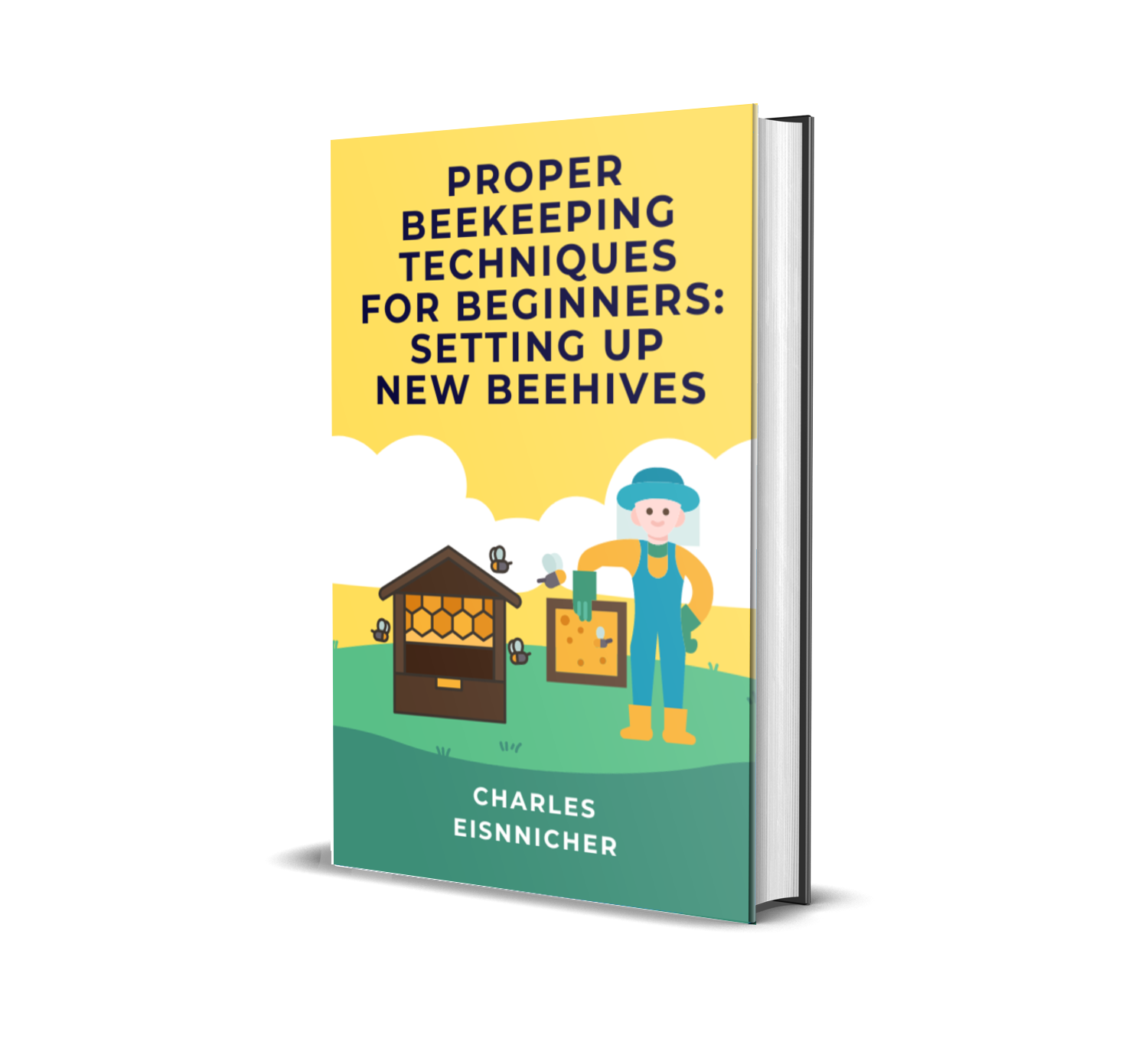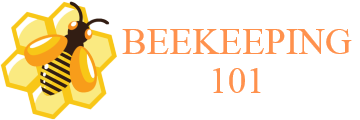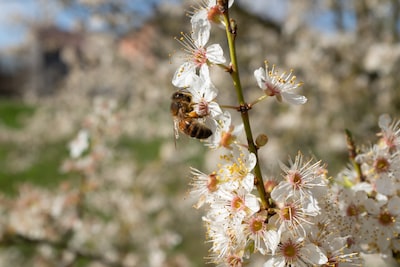Beekeeping is an incredibly rewarding hobby, providing gardeners and farmers alike with an abundance of benefits. It is certainly a challenging endeavor, but it can yield sumptuous rewards for the dedicated hobbyist.
If you’re interested in working towards becoming a beekeeper, the process begins with learning the basics. From the best tackle to purchase and potential problems to watch out for, this guide will provide all the necessary information for newcomers to the fascinating world of beekeeping.
Whether you’re a budding environmentalist looking to make a difference or a curious homeowner wondering if beekeeping could be the hobby for you, this article will provide a buzz-worthy introduction to this intriguing pastime. From the basics to beginner tips, you’ll be well on your way to starting your own apiary.
So, what are you waiting for? Let’s get started!
Table of Contents
Introduction to Beekeeping
Beekeeping is a fascinating and rewarding hobby that has become increasingly popular in recent years. It involves caring for a colony of bees and managing the resources they need to thrive.
Beekeepers can produce honey, beeswax, and other products as a result of their labor and efforts. Beekeepers need to be knowledgeable about the biology and behavior of bees, as well as the types of equipment and tools required to maintain them.
They also need to understand the importance of maintaining healthy hives, as well as safety measures to follow while working with bees. Beekeeping can provide a fun, educational, and productive experience while also providing a direct connection to nature.
Benefits of Beekeeping
Beekeeping has many benefits both to the environment and to the beekeeper. It provides pollination essential for the growth and abundance of six of the world’s seven main food crops.
In addition, the production of honey, wax, and propolis, which have medicinal and cosmetic properties, provide an economic benefit to the beekeeper. Furthermore, it encourages an appreciation for nature amongst its practitioners, as it is a unique endeavor to observe the subtleties of beehive behavior.
Finally, beekeeping helps increase the population of an important species, which is threatened by disease and habitat loss, ensuring a brighter future for pollination and the associated benefits.

Get A Free Downloadable Ebook To Teach You How To Set Up New Beehives
Give Me My Free eBookSpace Requirements for Keeping Bees
Keeping bees is an incredibly rewarding hobby that yields many rewards. An area as small as a single garden can provide enough space for an apiary of several hives.
Some basic requirements for finding a suitable space include ample foraging options for the bees, shelter from the elements, and protection from predators. Since honeybees forage for nectar and pollen within a two mile radius of their hives, the ideal space needs to provide a variety of flowers, trees, and shrubs within that distance that bloom throughout the different seasons.
Additionally, since bees do not do well in extreme heat or cold and will often require protection from rain, a sheltered area is best. Lastly, one must protect their hives from wildlife and other predators, such as bears, which can damage or disrupt the hive.
Taking these factors into account when selecting a space can help protect a beekeeper’s colony and ensure a successful beekeeping experience.
Buying Beekeeping Equipment
When buying beekeeping equipment, it is important to research what you will need depending on the size of your operation and the types of products you want to produce. Larger operations may need additional supers, honey extractors, frames and foundation, hive tools, bee suits, smokers, and more.
On the other hand, for a small operation, basic starter kit items such as a bee hive and bee brush will be adequate. For additional protection from bee stings, invest in quality bee veils to keep bees away from your face.
If you want to produce honey, be sure to purchase an uncapping knife, honey strainers, and wax foundation sheets to help the bees construct their combs. Appropriate beekeepers clothing such as gloves and a bee suit can ensure protection and comfort while managing your bee colonies.
Setting Up Your Apiary
Setting up an apiary (a bee hive) is not as complex as it may seem. Begin by selecting an apiary site, preferably in an area where there is access to both direct sunlight and protection from natural elements such as wind, rain, or snow.
Next, decide what type of equipment you will need. Hive bodies and frames require some assembly, as do smoker tools and protective clothing or veils.
Finally, it is essential to determine the necessary resources, such as bees, feeders and water. After these steps are taken, you’ll be well on your way to setting up and keeping your own apiary.
Maintaining Your Hive
Maintaining your hive is of paramount importance if you wish to ensure the success of the honey bee colony. It is critical to inspect your hive regularly, at least two to three times a year, to spot any potential problems.
Additionally, you must check for pest infestations and make sure there is a sufficient food supply. Be sure to remove any burr, brace, or mouse combs and provide ample space in the hive.
Furthermore, if necessary, re-queen the hive and provide adequate ventilation. Even more important is monitoring the health of the bees by checking for disease or deformed wing virus.
With diligent care and proper maintenance, you can help ensure the health and vibrancy of your hive.
Feeding Your Bees
Feeding your bees is an essential part of beekeeping as honey bees are unable to hibernate and must have a consistent source of carbohydrates such as sugar or honey. During the summer season, or when there is an abundance of natural nectar and pollen, supplemental feeding may not be necessary, however in times of dearth, such as late fall and winter, it is important to provide a substitute for the concentration of these vital nutrients.
A simple sugar syrup of 1 part sugar and 1 part water, added to the hive in a plastic container and replenished regularly, will help ensure the health of your colony and provide them with the energy needed to survive and thrive.
Bee Diseases and How to Treat Them
Bees are an essential part of our environment and an integral part of the food production chain. Unfortunately, bees are also susceptible to a variety of diseases, including foulbrood and short mite syndrome, that can seriously harm colonies.
To prevent the spread of these diseases and keep bees healthy, beekeepers should carefully monitor their hives and identify any signs of infection in the colony. When diseases are suspected, they can be treated with antibiotics, oils, acids, and other chemicals that are applied directly to the hive and/or the bees.
In addition, it is important to practice good hive management practices such as not over-harvesting, keeping hives clean, and providing healthy food sources. By taking these steps, beekeepers will have healthier colonies and contribute to the health and well-being of our planet.
Common Problems and Solutions for Beginner Beekeepers
Beekeeping is a rewarding and complex hobby lauded for its ability to promote pollination and increase biodiversity. There are, however, several common problems that beginner beekeepers may encounter, such as hive pests and parasites, swarming, hive mites, and bee diseases.
Fortunately, solutions to these problems are often within reach. For example, monitoring bee-hive pests such as small hive beetle can be done by regularly checking for larvae in the hive.
To protect against mites, a beekeeper may decide to treat the hive with a mite-killing fumigant. If a hive is swarming, then the beekeeper should observe and encourage the colony to move by shaking—or brushing—the bees into a new hive.
Aside from prevention, proper hygiene is the best way to keep the hive healthy; ensuring that suit, gloves, and tools are clean of contaminants is critical to keeping bees healthy. Finally, a beginner beekeeper should be familiar with their local regulations and seek meaningful advice before starting a hive.
Tips for Harvesting Honey
Harvesting honey is an important part of beekeeping. To reap the rewards of your labor, it is important to minimize stress to your bees and collect honey safely.
First, be sure to never extract honey during a dearth, which is a period of low food sources. When harvesting, leave enough honey in the hive for the bees—usually around 60-80% of the honeycomb should be left.
It is also important to not let the frames get too warm during removal and extraction, as excessive heat can kill lesser-protected bee larvae. Lastly, wearing protective gear is a must; beekeepers should always wear gloves and a bee suit to avoid bee stings and gassing.
In Summary
It’s time to take the plunge and become part of the world of beekeeping! Whether you have a small or large backyard, anywhere with flower diversity surrounding your area is great for keeping bees. You’ll soon start to reap the rewards of providing bees with sustenance and protection, including honey and pollination for flowers, native and wild plants, which will bring you joy, not to mention the fantastic feeling of achievement that comes with keeping bees.
Don’t be afraid to contact your local beekeeping association, who can provide you with more resources, knowledge, and support as you become a responsible beekeeper. So don’t hesitate– your bees await!
Charles

Get A Free Downloadable Ebook To Teach You How To Set Up New Beehives
Give Me My Free eBook








